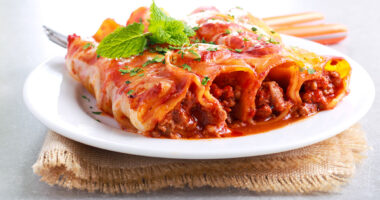
There are some really unhealthy foods which can make us more prone to bone related diseases.
Diet for building strong bones include foods that are chock-full of bone building calcium and Vitamin D. Vitamin D is known to help strengthen our bones and also keep osteoporosis at bay. As we grow older our bone density starts reducing and this is inevitable. This would be the time to change one’s diet and start including all the calcium and Vitamin D rich foods. While we are on the subject of what to eat to make our bones stronger, we should also be aware of the foods that can make our bones weaker.
Here is a list of food items that are the worst for our bone health.
5 Worst Foods For Bone Health
Foods that are high in sodium content, and sugar content have the properties which can restrict our body from absorbing calcium. This is how it reduces the bone mineral density and makes it weaker.
High Sodium
High sodium content in food can make our boned weak and strip them off of calcium and other minerals. According to a study published in the journal Asia Pacific Journal of Clinical Nutrition in 2016, Chinese people who ate a lot of salty foods were reported to be prone to diseases like osteoporosis. Osteoporosis is a condition which results in the thinning of bones. The study also found that, the same thing applied to postmenopausal women. The more salt you consume the more calcium you can lose.
Sugary snacks
Another food which can be called as ‘poison’ for our bone health in sugar. When people consume excess sugar, there bodies are unable to absorb all the good nutrients that are essential for bone health. That is why they become more prone to bone related illnesses.
READ RELATED: Homeopathic Remedies For Skin Rashes
Soda
Sodas are linked to reduction in our bone mineral density. The more colas we drink the more low our bones density will be. Sodas have no nutritious value. It can also make our bones prone to fracture.
Caffeine
Caffeine is not bad for health but excess caffeine is never good. According to study published in BMC Musculoskeletal Disorders, Excess caffeine consumption can lead to low bone density and weak bones in women who have just gone through menopause.
Alcohol
Chronic and heavy alcohol consumption is known to contribute to low bone mass, decreased bone formation, an increased incidence of fractures, and delayed fracture healing,” Khader says. And it can happen at a younger age than you might think. Healthy women, ages 19 to 30, who consumed high amounts of alcohol had lower bone density scores than those who didn’t, according to a study published in BMJ Open in October 2015.
Total Wellness is now just a click away.
Follow us on
window.addEventListener(‘load’, (event) => {
// $(document).ready(function(){
$(‘#commentbtn’).on(“click”,function(){
(function(d, s, id) { var js, fjs = d.getElementsByTagName(s)[0]; if (d.getElementById(id)) return; js = d.createElement(s); js.id = id; js.src = “//connect.facebook.net/en_US/sdk.js#xfbml=1&version=v2.3”; fjs.parentNode.insertBefore(js, fjs);}(document, ‘script’, ‘facebook-jssdk’));
$(“.cmntbox”).toggle();
});
// });
});







